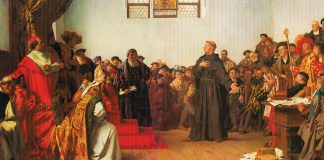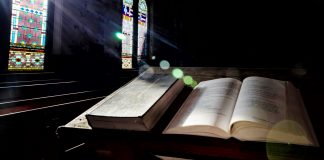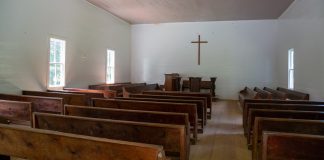Puritanism in the Protestant Reformation
Less than 50 years after the supporters of Martin Luther’s ideas in Germany were mockingly called “Lutherans,” England was in its turn discovering a derogative nickname—“Puritans”—which it applied to a category of Christians who disturbed the ordinary life of the English church and society.[1]
Brethren Assemblies | The history of the Brethren
The history of Brethren Assemblies begins in the 19th century, when groups of British believers began to be dissatisfied with the Anglican Church, which they saw as enslaved to the state and which they considered to be abandoning the fundamental principles of Christianity.
The Baptist Church
The Baptist Church has made significant contributions to religious life by embracing the principle of separation of church and state and the principle of religious freedom.
Fighting over the West: Orthodoxy, Protestant Reformation, and Catholicism
At the beginning of the 15th century, the threat of the Ottoman Empire to Eastern Europe was a painful certainty. The last Byzantines, aware of the ensuing disaster, called on Western aid, seeking political union with the Roman Catholic Church.
Does divorce make us happier than continuing in an unhappy marriage?
At the age of 27, for the first time in my life, I worried that time was passing too fast. For the next few years, the speed with which most of my friends were getting married was the next source of concern.
Luther’s protest is not over
In January 2014, in what catholic.org called a historic gesture, Pope Francis sent a message of unity, recorded on a mobile phone, to charismatic and Pentecostal leaders attending a conference organised by Kenneth Copeland Ministries.
The faith of a surgeon
Broken blade. Shaking hands. Clouded mind. “I could have killed him.”
The Waldenses | The poor of Christ
The “poor of Christ”, the “poor of Lyon” or, simply, the “brothers” never called themselves “Waldenses” until they joined the Reformation. The derisive appellative was given to them by their persecutors, after the name of the man who consolidated the doctrine of the community.
On the banks of a river where no one had ever been
Jim Elliot was 25 years old when he headed to Ecuador as a result of the answer he sought from God regarding his future.
They took up the cross and killed
The first eight days of the Council of Clermont were difficult. Although the participants were apparently discussing the reform of the clergy, or the excommunication of King Philip for adultery, the real focus of attention was the announced speech of "general interest" by Pope Urban II. Little did the prelates and important Frankish nobles present know that they were about to witness one...
The Pentecostal movement: Pentecostalism and the Reformation
Pentecostalism has its origin in the Greek word Pentecost, which means “fifty” and refers to the receiving of the Holy Spirit by the apostles on the feast of Pentecost in Jerusalem, followed by speaking in tongues (glossolalia). However, this Pentecostal phenomenon predates the Pentecostal movement which began at the beginning of the 20th century.
Pietism within the Protestant Reformation
Pietism was a movement of spiritual revival that took place between the seventeenth and nineteenth centuries mainly in Germany and Bohemia.
The Protestant Reformation: The river that runs through the whole earth
The Protestant Reformation was a tumultuous river, the flow of which began to become visible in 1517. A significant contribution to this eruption was made by its tributaries, the (pre-) Reformation movements: the Waldenses, Albigensians, Lollards, Hussites, etc.—true springs of the main Protestant current, which took over their force in its flow through history.
Hudson Taylor | When the mountains move aside
Hudson Taylor undertook eleven journeys between Europe and China, and his mission prospered. He had one of the most complex and successful visions for evangelism.
The little giant
“Born in a home where the scant necessities of life were luxuries, when he left the world for heavenly scenes of labour, he bequeathed it his possessions–two silver spoons, a silver teapot, a well-worn frock coat the Methodist Church”[1] Basil Miller


























